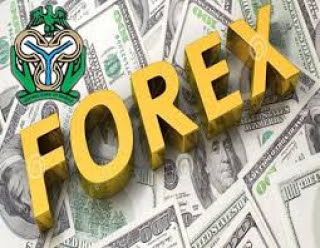Nigeria’s currency, the Naira, depreciated in exchange rate against the US dollar at the black market on Wednesday by 0.40% to trade at an average rate of N753/$1 when compared to the N750/$1 it exchanged at during the previous day’s trading session.
The local currency also marginally lost in exchange rate value against the British Pound Sterling during the trading session and traded at an average exchange rate of N955/£1 or 0.21% lower than its exchange rate of N953/£1 on Tuesday.
Similarly, the Naira recorded a 0.37% loss against the Euro, trading at an average exchange rate of N810/€1 when compared to the N807/€1 it traded during the previous day’s trading session.
Available data from the cryptocurrency Peer-to-Peer (P-2-P) Exchange market platform, showed that the local currency also depreciated by 0.73% to trade at a minimum of N766.10/$1 compared to its N760.55/$1 exchange rate on Tuesday.
Over the past years, the Central Bank of Nigeria (CBN) has been supplying US dollar to FX traders at both the official window and parallel market for some years now as part of its monetary measures to achieve a stable exchange rate for the Naira over the past years,
The apex bank discontinued its FX supply to the parallel market early in March 2020 following its findings that some FX dealers were abusing the privilege by engaging in FX round-tripping.
The CBN has not reversed the decision on discontinuation of FX intervention at the unofficial market and analysts believe that this is partly responsible for the huge disparities in the local currency’s FX rate in the official and parallel markets.
However, there are strong indications that the FX exchange rate may soon be over as the new President, Bola Ahmed Tinubu, had in his inaugural address to the nation on Monday, May 29, expressed his desire to discontinue the FX exchange rate disparities.
Specifically, the President charged the Central Bank of Nigeria (CBN) to immediately consider appropriate monetary measures to end the disparities as a strategic step towards improved exchange rate for the Naira and by so doing, create a more conducive environment for business planning and projections.






